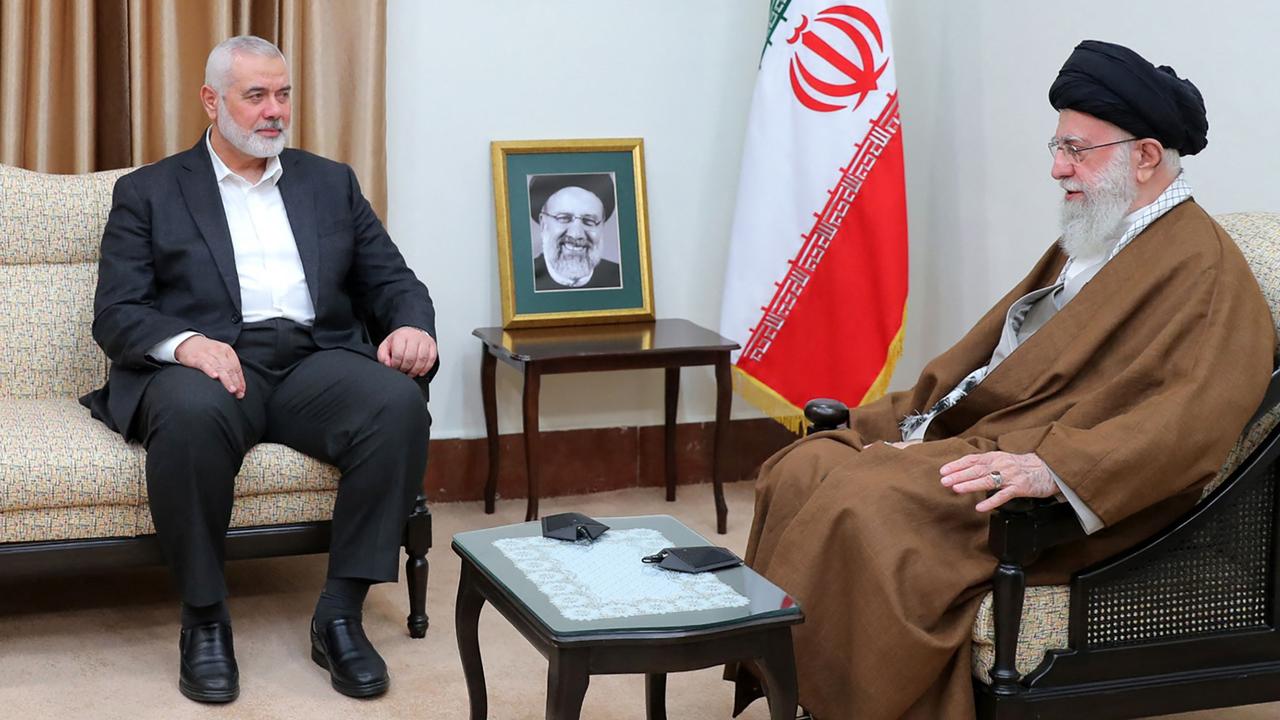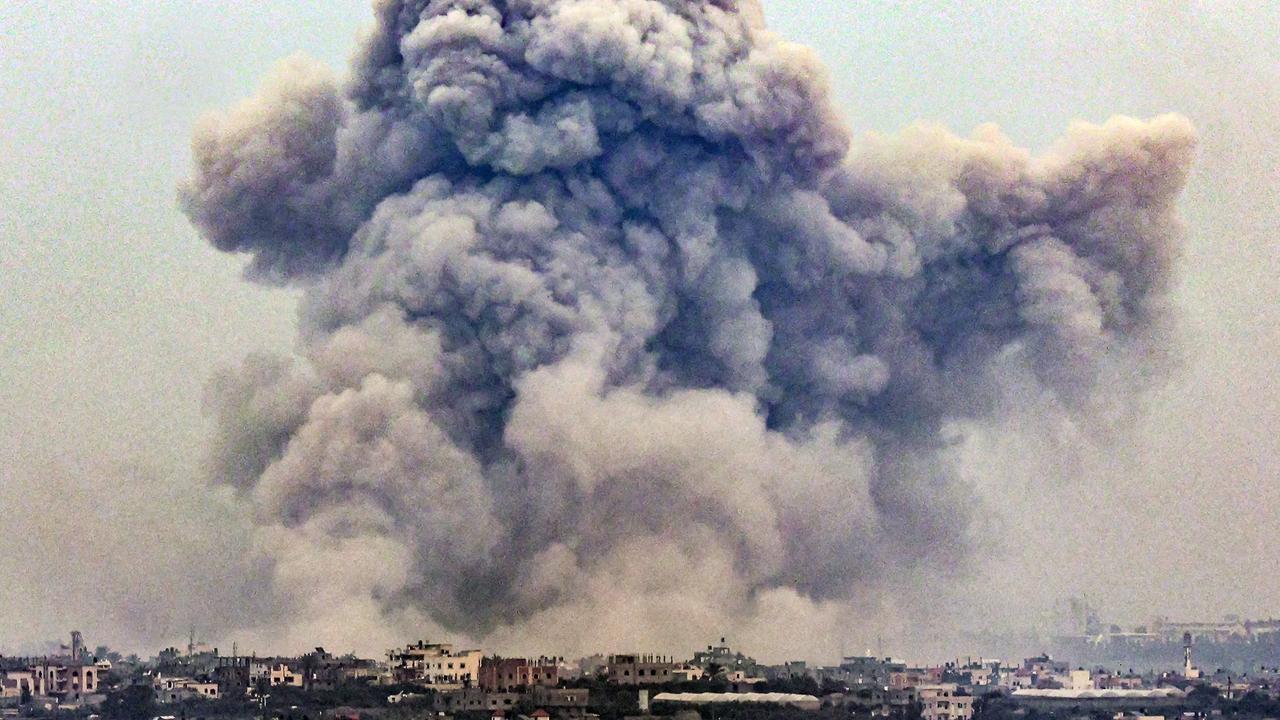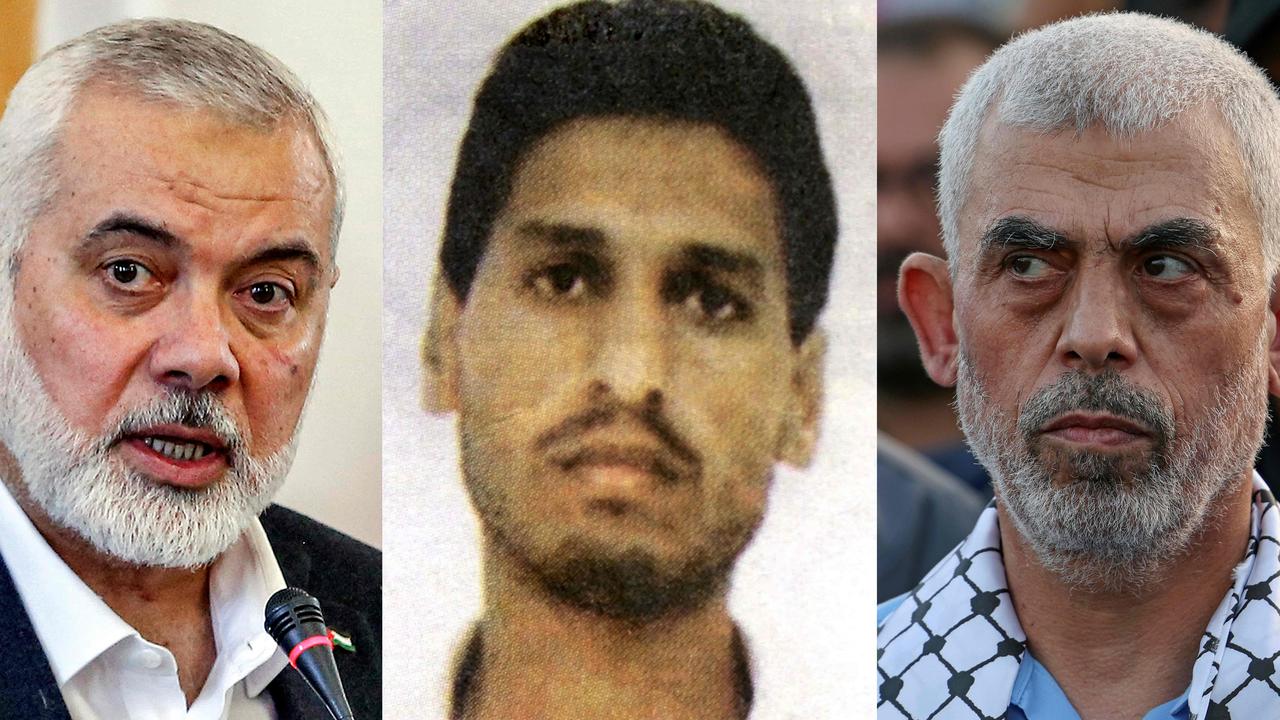
This article is more than
1 year old
The head of Hamas has been assassinated — leading to warnings we are on the brink of a “full-scale war”.
Ismail Haniyeh, the head of Palestinian terror group Hamas, has been assassinated in Tehran.
Iranian state TV made the announcement early on Wednesday, local time.
Hamas confirmed the news, saying its chief was killed by an Israeli strike.
“Brother, leader, mujahid Ismail Haniyeh, the head of the movement, died in a Zionist strike on his headquarters in Tehran after he participated in the inauguration of the new [Iranian] President,” the group said in a statement.
Haniyeh had travelled to Iran on Tuesday from his home in Doha, Qatar, for the swearing-in ceremony of reformist President Masoud Pezeshkian.
Iran’s Islamic Revolutionary Guard Corps (IRGC) said Haniyeh and a security guard were ambushed in their place of residence.
“The residence of Ismail Haniyeh, head of the political office of Hamas Islamic Resistance, was hit in Tehran, and as a result of this incident, him and one of his bodyguards were martyred,” the IRGC said in a statement on its Sepah news website.

The cause of the “incident” was not immediately clear but the IRGC said it was “being investigated”.
Israel has not yet commented, but had previously vowed to eliminate Haniyeh and other Hamas leaders following the October 7 attacks.The 62-year-old was elected head of Hamas’ political wing in 2017.
He was one of the group’s three top officials alongside Yahya Sinwar, the leader in the Gaza Strip, and Mohammed Deif, the head of Hamas’ military wing, the al-Qassam Brigades.
‘Full-scale war’ warning
The ABC’s global affairs editor, John Lyons warned the killing was “extremely big” and that we are “on the brink of a full scale war in the Middle East”.
“I think that in my assessment that the idea of a cease-fire in Gaza now is completely off the table,” he said. “I think Hamas’s position would be our chief negotiator has been killed. All bets are off.
“A full-scale war in the Middle East looks like Iran giving the go ahead to Hezbollah to unleash its arsenal of missiles in the south of Lebanon — as many as 150,000 missiles, they’re reliably reported to have.
“Israel would, of course, try to fend that off with their Iron Dome and other technology. But if you’ve got that many rockets coming at you, it’s very hard.
“Hezbollah’s missile capability is infinitely better than Hamas’s and they are much stronger fighting force.”

Dr Martin Kear from the University of Sydney said the killing was “very significant”.
“This would be the equivalent of Hamas assassinating [Israeli Prime Minister] Benjamin Netanyahu,” Dr Kear told the ABC.
“So it really throws the entire ceasefire process, the entire conflict up in the air and has the potential to drag in other players like Iran. I think it’s significant the assassination occurred while Ismail Haniyeh was in Tehran. It would amount to an attack on Iran.”
But Dr Kear said it was unlikely Israel would claim responsibility.
“They’ve said in the past they are open to assassinating Hamas leaders for October 7,” he said.
“That said, they haven’t attacked one of the members of the senior leadership since they tried to assassinate Ismail Haniyeh’s predecessor in 1997.”
Hamas would now have no incentive to engage in ceasefire talks “because it’s quite clear Israel is not interested in ending this war”, according to Dr Kear.
“I can’t imagine the Biden administration would be at all pleased with this deliberate escalation,” he said.
“It has the potential of not just drawing in Iran but drawing in other Arab states in condemnation of Israel. [The US] is seeking a ceasefire to this war that’s been going on for 10 months ... so I would imagine the Biden administration would have some support for Israel and protect Israel when the inevitable strike against it comes from Iran, but I would imagine in the diplomatic circumstances they would be extremely unhappy.”

It comes after Israel said it had killed Fuad Shukr, the top military commander of Hezbollah, in an air strike on Beirut.
Israel said the strike on Tuesday was in retaliation for a deadly rocket attack on the annexed Golan Heights on Saturday that killed 12 children.
The Iran-backed terror group has denied any involvement.
Iran, which does not recognise Israel and considers it to be its arch-foe, has repeatedly warned Israel against attacking Lebanon.
“The Zionist regime will make a great mistake with heavy consequences if it attacks Lebanon,” Mr Pezeshkian said during a Monday call with French President Emmanuel Macron, according to the Iranian President’s website.
Israel has previously carried out assassinations inside Iran of key figures in the country’s nuclear program.
In April, an Israeli air strike on the Iranian consulate in the Syrian capital of Damascus killed more than half a dozen people, including a senior IRGC commander.
Days later, Iran launched an attack against Israel using hundreds of suicide drones.
Regional tensions have soared since the start of the Israel-Hamas war in October, drawing in Iran-backed militant groups in Syria, Lebanon, Iraq and Yemen.
The October 7 Hamas attack on southern Israel that started the war resulted in the deaths of 1197 people, mostly civilians, according to an AFP tally based on official Israeli figures.
Militants also seized 251 hostages, 111 of whom are still held captive in Gaza, including 39 the military says are dead.
Israel’s retaliatory military campaign in Gaza has killed at least 39,400 people, according to the health ministry in the Hamas-run territory, which does not provide details on civilian and militant deaths.
Iran has made support for the Palestinian cause a centrepiece of its foreign policy since the 1979 Islamic revolution.
It has hailed Hamas’s October 7 attack on Israel but denied any involvement.
— with AFP